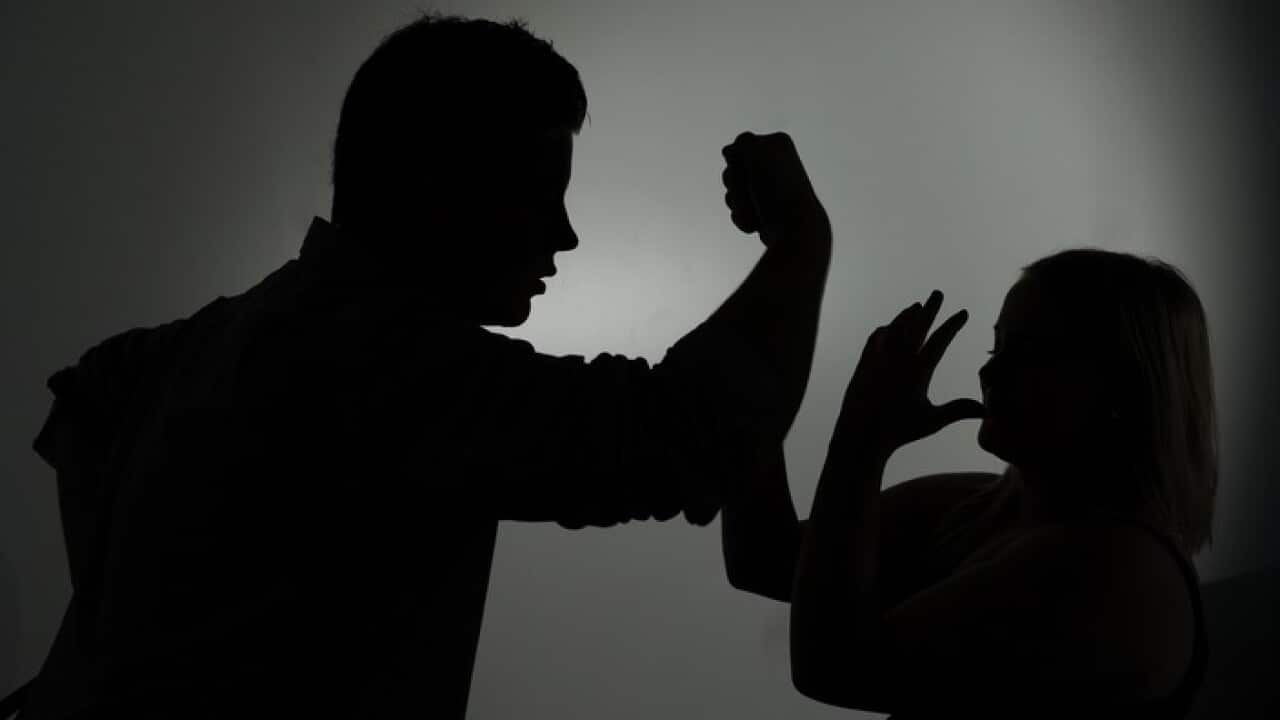In its decision last week, the Supreme Court of Victoria upheld the County Court’s decision of convicting a 38-year-old man, dismissing his appeal against the jury’s guilty verdict.
Highlights:
- Supreme Court of Victoria has sentenced a man to 14 years in prison for raping his wife.
- The County Court had found him guilty and sentenced him to 9 years and 7 months’ imprisonment.
- The Supreme Court rejected his appeal and re-sentenced him to 14 years' imprisonment.
The jury had found the man, mentioned as 'S' in the court’s decision, guilty of 10 charges of rape, two charges of assault, one charge of assault with intent to commit a sexual offence, and the charge of threatening to kill.
Listen to this podcast:
LISTEN TO

'Most women don't understand they can say no to their partners' says an expert
SBS Hindi
04/01/202107:07
He was acquitted of three charges of rape and one of indecent assault. On two further charges of rape, the jury was unable to reach verdicts.
He approached the Supreme Court seeking leave to appeal against his conviction on the grounds of inconsistent verdicts.
According to , he submitted that there was "no logical or rational explanation for the jury having been satisfied beyond a reasonable doubt on 14 charges but having failed to be so satisfied on the remaining six charges".
However, the Supreme Court judges Maxwell P, T Forrest and Weinberg JJA rejected his appeal. They sentenced him to a total of 14 years’ imprisonment and fixed a non-parole period of 10 and a half years.
“It is clear, in our view, that the jury accepted K as a credible and reliable witness. At the same time, paying proper regard to the high standard of proof required, the jury viewed the specific areas of uncertainty in the evidence as raising a doubt. In those circumstances, the jury properly gave S the benefit of the doubt,” said the Supreme Court judges.
Background
Thirty-three-year-old S married a 28-year-old woman, mentioned as 'K' in the court’s decision, on 23 February 2015. The two had met only once - the day before the marriage - and the woman moved in with S in a flat he was sharing with his friends.
The marriage lasted only six months before K fled interstate to where her sister lived. She has since divorced S.
She subsequently reported to police that S had raped her repeatedly during those months, and had been violent to her in various ways.
K told police that on one occasion, S beat her, attacked her and raped her before putting her out of the apartment without clothes.
She was outside, naked, for 45 minutes, the County Court was told.
S faced trial in the County Court on multiple charges of rape and assault, and one charge of threatening to kill. The jury found him guilty on 10 charges of rape, two charges of assault, one charge of assault with intent to commit a sexual offence, and the charge of threatening to kill.
The county judge said: “In each instance, the [offender] treated the complainant as his property, not as an equal, nor as a person worthy of his respect. ... [T]hat is abhorrent and cannot be tolerated.”
The County Court judge said in his decision: "...because of the seriousness of the offending, S would certainly be deported to India, when he became eligible for parole, thus putting paid to ’11 years of hard work’."
He was sentenced to nine years and seven months’ imprisonment, with a non-parole period of six years and seven months.
The Director of Public Prosecutions appealed against the sentences imposed.
‘Extremely serious offending’
The Supreme Court judges said in the verdict that this was extremely serious offending.
They have had regard to various previous decisions, including Director of Public Prosecutions v Mokhtari.
A passage from that decision has been quoted in the verdict.
“…all acts of non-consensual penetration are objectively serious, irrespective of the form and the extent of the penetration.
“In a case like the present, however, both the objective gravity of the offence and the offender’s moral culpability are greatly increased,” reads the passage quoted.
“We are nevertheless persuaded that the individual rape sentences are manifestly inadequate. They simply do not reflect the seriousness of the offending, as described earlier in these reasons. Substantially higher sentences were called for. S was not, of course, entitled to a discount for pleading guilty. Nor could he call in aid any expression of remorse,” said the supreme court judges.
'Limited understanding'
Australian law makes it clear that if a is married to a upon whom an offence under , , or is alleged to have been committed, it is no bar to the first being convicted of the offence.
However, this is a recent development. Hardly two decades ago in most Australian states and territories, men could rape their wives with impunity as rape in marriage was not a crime.
Now state legislatures have enacted laws that address the issue of rape in marriages.
Arezo Safi, a leading NSW solicitor who practises in criminal and family law, says the understanding of whether the changes in legislation has resulted in effectively changing the social, cultural and legal responses to sexual violence by male intimate partners is limited.
“The loss of a husband’s immunity went some way to acknowledging a woman’s individual bodily autonomy and her right to consent to each and every act of sex.
“The issue remains that sexual violence in an intimate relationship is not easily perceived as family violence. Marital rape is not culturally understood, especially in the South Asian communities,” says Ms Safi.
She also points out that most women, particularly in migrant communities, do not understand that non-consensual sex with their intimate partner constitutes rape in Australia.
“It is a crime and punishable. Whilst, the husband’s immunity has been abolished, as a society, we still have to go further in recognising that sexual violence is still a strong and present component of family violence,” said Ms Safi.
If you need assistance, there are specialist family violence services that are available to help, including:
- 1800RESPECT — 1800 737 732
- safe steps Family Violence Response Centre — 1800 015 188
- InTouch Multicultural Centre Against Family Violence
- W|Respect — 1800 542 847
- Men’s Referral Service — 1300 766 491
In an emergency, always call Police at Triple Zero (000). If English is not your first language, you can ask for an interpreter.






